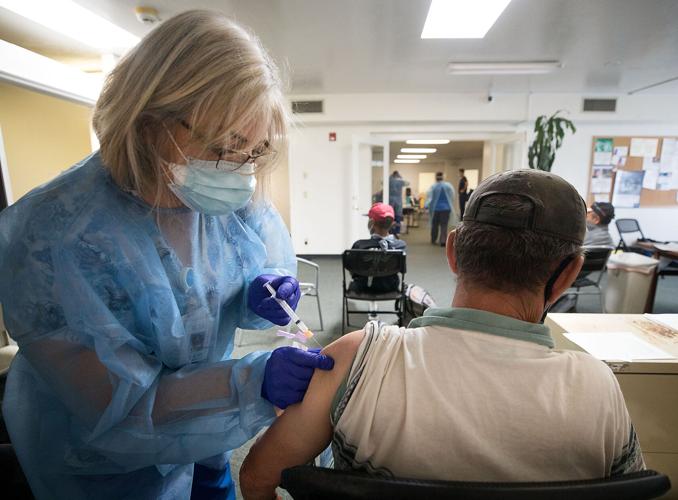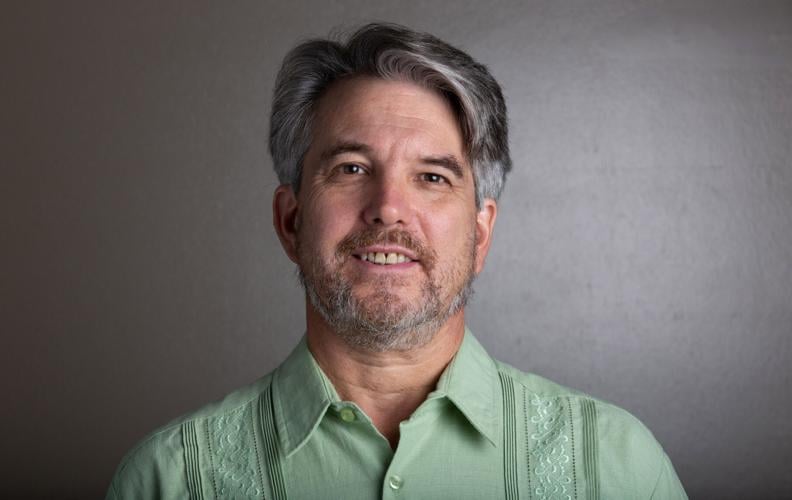If Arizonans listen closely to our leaders’ comments on vaccinations, we could be in trouble in coming years.
Perhaps unintentionally, maybe deliberately, they’ve echoed one of the key anti-vaccination arguments in their statements on the COVID-19 vaccine — “medical freedom.”
The idea is deceptively simple — that individuals, not governments, should decide whether a person gets a vaccine. It’s been used to expand exemptions from immunization requirements at schools and undermine the idea that getting vaccinated is part of the social contract that keeps society safe from diseases like measles, pertussis and polio.
You could hear the idea voiced repeatedly during this summer’s debates over mandates for the COVID-19 vaccine.
“The vaccine works, and we encourage Arizonans to take it. But it is a choice and we need to keep it that way,” Gov. Doug Ducey said in a June 15 press release.
“COVID-19 vaccinations should be a choice, not a government mandate,” Attorney General Mark Brnovich said in a Sept. 7 statement about the city of Tucson’s mandate for employees.
He added a more sweeping claim in a tweet on Friday: “The legislature has spoken — there is no place for Critical Race Theory or vaccine mandates in our schools.”
State Sen. T.J. Shope, a Coolidge Republican, went the furthest in a Sept. 9 tweet:
“When I say I’m opposed to government compelled Vax requirements, I mean I’m 100% opposed to gov compelled mandates of any kind!”
Shope played a key role in opposing vaccine and mask mandates this summer. First he alerted Ducey to ASU’s plan to require regular COVID-19 testing or vaccination on campus, then he turned Ducey’s executive order banning mandates into a new state law, being contested now in court.
In their comments, these three were focused on the response to the current pandemic. Shope told me last week he was only talking about the COVID-19 vaccine, not pre-existing immunizations like the pertussis shot, in his sweeping tweet.
But put into action, the words of Shope and other politicians could undermine the state’s faltering efforts at protecting children and the rest of the community from vaccine-preventable diseases.
Arizona schools have already been experiencing a surge in the percentage of students with personal belief exemptions from mandates for immunizations like measles, mumps and rubella, or whooping cough.
The percentage of Arizona students with a personal-belief exemption from at least one immunization went from 4.5% in the 2015-2016 school year to 5.9% in 2018-2019, before settling to 5.4% in 2019-2020, the last year for which data is available.
These are important percentages, because it can take 95% immunization rates to establish herd immunity for a disease like measles in a school.
“Over the last several years, there’s been an increase in the use of personal exemptions, to the point that some schools don’t have herd immunity and are vulnerable,” said Jennifer Tinney, program director of The Arizona Partnership for Immunization.
And during the pandemic, children fell far behind their immunization schedules, because there was a 30% to 50% drop in preventative medical appointments, said Dr. Sean Elliott, who is a pediatric infectious disease specialist. Up to 50% of children in some areas of Arizona are delayed on their vaccine schedule, he added.
The risks aren’t theoretical: Vail schools experienced a pertussis, or “whooping cough,” outbreak in 2013, and dozens of pertussis cases have occurred in Pima County this year, though they’re not clustered.
A large measles outbreak occurred in California in 2014-15, prompting new laws that eliminated the state’s “personal belief” exemption from immunizations. That led to a sharp increase in vaccination rates.
In 2019, after a measles case in Pima County, Arizona health officials warned that immunization rates in some parts of the state were too low to prevent an outbreak.
That same year, Ducey spoke with greater clarity on the issue than he has this year.
“I’m not going to sign any law that doesn’t promote or extend vaccinations in the state of Arizona,” he said in 2019, explaining his opposition to bills that would have expanded personal exemptions to immunization requirements and likely led to fewer kids getting vaccinated. “I think it’s important for people to know that we are pro-vaccination in the state of Arizona.”

Lupe Fierro, a medical assistant with El Rio Community Health, administers at a COVID-19 vaccination at a pop-up clinic at the Primavera Foundation Homeless Intervention & Prevention Drop-In Center.
Although not everybody follows their political leaders, it matters what people like Ducey, Brnovich and Shope say. It can reverberate in the social networks that really determine where people fall on divisive social issues.
I asked Damon Centola, professor of communication, sociology and engineering at the University of Pennsylvania, about how anti-vaccination messages spread and gain adherents. He’s explored the question repeatedly in his research and in his new book, “Change: How to Make Big Things Happen.“
“The information that’s spread from news sources but more importantly government authorities then gets filtered through our social networks, partially on social media, partially in face to face conversations and in our neighborhoods,” Centola said. “Those conversations do a lot of the work to determine what we ultimately believe.”
Spreading doubt about vaccines and whether they might harm children was the longstanding focus of anti-vaccine activists. But increasingly over the years, the more marketable idea of “medical freedom” has become the movement’s top selling point.
That’s been hard for Republican politicians to resist in the pandemic era. Even though former President Donald Trump can rightfully take significant credit for the fast rollout of a working vaccine against COVID-19, Republicans are by far the most vaccine-hesitant group, according to Gallup polling.
As of this summer, 46% of Republicans did not plan to get vaccinated for COVID-19, as compared to 31% of independents and 6% of Democrats.
The growth of right-wing vaccine hesitancy worries Will Humble, who was Arizona health director from 2009 to 2015. During that period exemptions from required immunizations tended to be more common in higher educated “purple, if not blue” areas of the state, he said. Now it’s spreading at both political extremes.
The solution will have to use the same social media and social networks that the problem used.
I asked Federico Germani, a molecular biologist and postdoctoral researcher at the University of Zurich, about that. Germani has studied anti-vaccine communication on social media and found that powerful anecdotes are what anti-vaccine advocates use to win people over.
“This is a communication strategy they’ve adopted regardless of whether we’re talking about COVID-19 vaccines or other vaccines,” he sad.
Personal stories of alleged risks or problems associated with vaccines will have to be met with personal stories of vaccine success, Germani said. Most of us have them — they’re routine stories of getting vaccinated, of not getting sick, of vulnerable people being protected, of transmissible diseases absent around us.
These can be used against the “medical freedom” argument that vaccines are simply a matter of choice, not a social contract.
But it would help if our elected officials stopped spreading arguments that undermine vaccination generally.
Tim Steller is an opinion columnist. A 25-year veteran of reporting and editing, he digs into issues and stories that matter in the Tucson area, reports the results and tells you his conclusions. Contact him at tsteller@tucson.com or 520-807-7789. On Twitter: @senyorreporter






